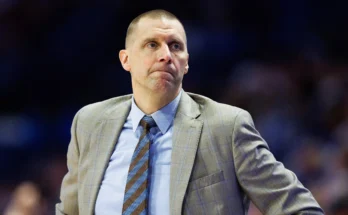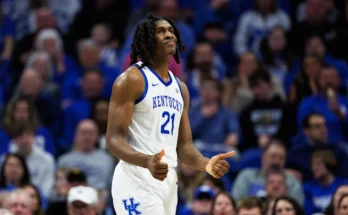In the ever-evolving world of professional football, few dynamics are as crucial—or as misunderstood—as the relationship between a head coach and his star quarterback. It’s an intricate, high-stakes partnership forged through daily strategy meetings, sideline conversations, and shared ambitions. And when it comes to the Baltimore Ravens, one can’t help but wonder: what’s it really like between Coach John Harbaugh and quarterback Lamar Jackson?
While the inner workings of NFL locker rooms are largely shielded from the public eye, patterns emerge through interviews, game-time behavior, and results on the field. If we’re speculating what it’s like—what Coach is probably like with Lamar, too—we have to draw from what we know, what we’ve seen, and what success looks like when quarterback and coach are on the same page.
Let’s start with the basics: John Harbaugh is a no-nonsense coach with a background in special teams and a penchant for adaptability. He’s not a flashy, soundbite-generating coach like some of his peers. Instead, he builds cultures—tough, resilient, and disciplined locker rooms. He values leadership, loyalty, and players who are willing to put in the work. Harbaugh’s teams don’t just play football—they play with an identity.
Then there’s Lamar Jackson, a quarterback whose journey into the NFL was anything but traditional. Criticized pre-draft as not being a “real” quarterback, passed on by multiple teams, and finally picked with the last selection of the first round in 2018, Lamar has played every snap like he’s still proving something. He’s electric, unorthodox, confident, and fiercely competitive. And yet, by all accounts, he’s also deeply humble, team-oriented, and coachable.
So, what’s it probably like when those two minds meet?
At the core, their relationship likely thrives on mutual respect. Harbaugh saw something in Lamar when many teams didn’t. He didn’t try to force him into a traditional quarterback mold. Instead, he empowered his staff to build a system around Lamar’s unique talents. That decision paid off when Jackson was named the 2019 NFL MVP, leading the Ravens to a 14-2 record while redefining the position with his dual-threat abilities.
That kind of trust isn’t built overnight. It’s probably forged through hours of film study, collaborative game-planning, and shared accountability. Coaches often preach a “do your job” mentality, but when a quarterback has the improvisational gifts of Lamar Jackson, “doing your job” sometimes means getting out of the way and letting the playmaker take over. That balance—between structure and freedom—is where Harbaugh likely excels with Lamar.
Consider this: Harbaugh is the kind of coach who goes for it on 4th down more than most. He’s analytical, but not beholden to the numbers. He trusts his gut, and more importantly, he trusts his quarterback. That’s why, in those high-pressure moments, you often see Harbaugh turning to Lamar on the sideline, asking, “You want to go for it?” That’s not just coaching—that’s partnership.
There’s a fine line between a coach challenging his star and undermining him. Harbaugh seems to have mastered that balance. He likely pushes Lamar in film sessions, demanding the details, encouraging better ball security, and refining mechanics. But he also lets Lamar be Lamar. And that’s not just smart—it’s essential. Trying to turn Jackson into a drop-back passer like Brady or Manning would be a waste of his athletic genius.
And for Lamar, that respect surely goes both ways. He doesn’t need a coach who micromanages him or doubts his instincts. He needs someone who believes in his leadership, who sees the hours he puts in, and who doesn’t flinch when the outside noise grows loud. Harbaugh, with his steady demeanor and long tenure in Baltimore, is that kind of coach.
It’s also worth considering how their relationship evolves under pressure. Playoff exits sting, especially when the expectations are sky-high. The Ravens have fallen short in the postseason multiple times since Lamar took over, and yet, you don’t hear leaks of discontent. There’s no anonymous finger-pointing in the media. That speaks to a locker room culture where problems are handled internally—a culture that starts with the head coach and the quarterback.
That’s not to say there aren’t disagreements. Football is emotional, and tempers flare. But the best coach-quarterback duos have a way of turning those moments into fuel. One can imagine Harbaugh challenging Lamar to read defenses more quickly or to slide instead of taking hits. And just as easily, you can imagine Lamar challenging Harbaugh on scheme flexibility or asking for more control at the line of scrimmage. That back-and-forth, if it exists, is probably healthy—a sign of growth and mutual investment.
Let’s talk leadership, too. Harbaugh’s teams always have strong leadership cores—players like Ray Lewis, Terrell Suggs, and Marshal Yanda in past years. Today, Lamar Jackson is part of that core. You can bet Harbaugh expects more from Lamar than just touchdowns. He likely asks him to mentor younger players, set the tone in practice, and take ownership of the offense.
And Lamar, for his part, has embraced that role. He’s not the loudest leader, but he leads by example. He shows up early, stays late, and owns his mistakes. He also makes football fun—something you can tell the Ravens feed off of. That kind of energy is contagious, and any good coach knows when to let it flow.
Another important layer is how Harbaugh and Lamar handle adversity. Injuries, media scrutiny, contract negotiations—all of that can strain a coach-player relationship. During Lamar’s contract saga, Harbaugh never publicly threw him under the bus. He stayed supportive, even when questions about commitment and durability swirled. That loyalty probably meant a lot to Lamar, and when he finally signed his extension, there was a sense of relief—and renewed purpose.
Fast-forward to today, and their relationship seems stronger than ever. Lamar is not just a star—he’s a franchise cornerstone. And Harbaugh, now one of the longest-tenured coaches in the league, is still evolving his playbook and leadership style to match Lamar’s growth. That kind of adaptability is rare. Most coaches don’t last this long unless they can reinvent themselves.
So, what’s the bottom line?
If we’re talking about what Coach is probably like with Lamar, the picture is one of trust, collaboration, and shared identity. It’s not perfect, because no relationship in pro sports ever is. But it’s functional. It’s productive. And, more importantly, it’s built to last.
They don’t just share a headset on game days—they share a vision. A vision of what the Ravens can be when talent meets preparation, when improvisation meets structure, and when mutual belief overrides outside doubt.



